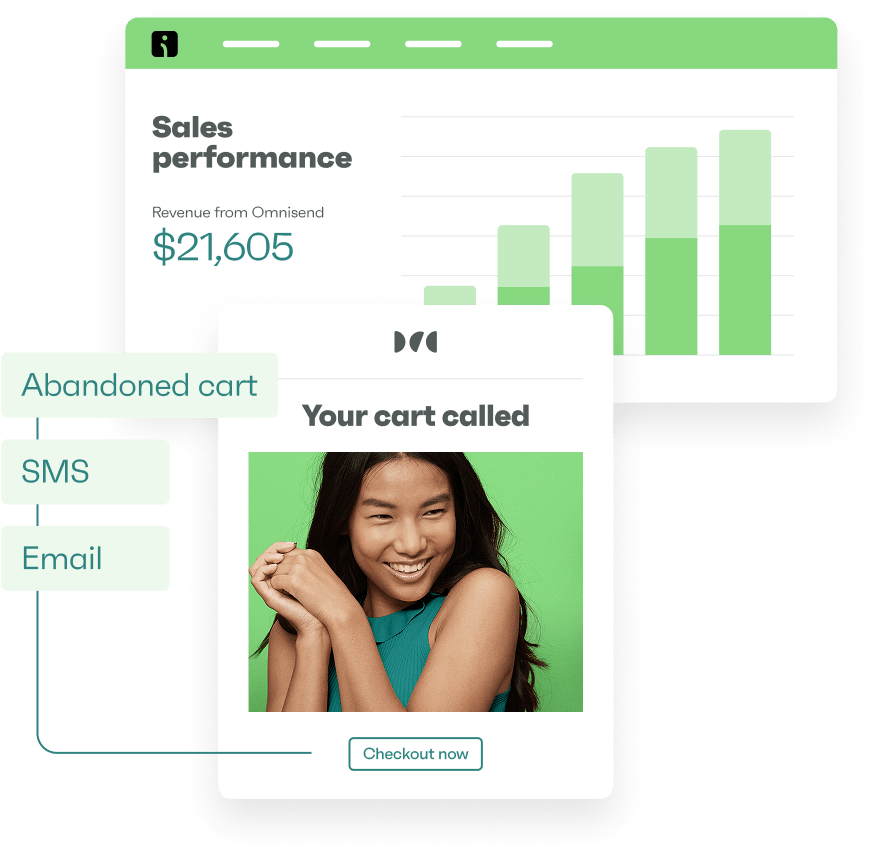Drive sales on autopilot with ecommerce-focused features
See FeaturesRead summarized version with
Have you ever heard that making money online is only for tech geniuses or experienced entrepreneurs? Let’s be clear: that couldn’t be further from the truth, especially when you’re using WordPress.
Thanks to its user-friendly interface, endless customization options, and vast plugin selection, WordPress empowers anyone — from those with side hustles to small business owners to enterprises — to turn their ideas into profit-generating websites.
Whether you want to start a blog, sell digital products, or run a full ecommerce store, WordPress provides the tools and flexibility to make it happen. All you need is the right strategy and a willingness to take the first step.
In this article, we’re going to share 15 ways people make money with WordPress.
Quick sign up | No credit card required
How to make money with WordPress
- Start a blog and monetize it
- Sell digital products
- Offer professional services
- Create and sell online courses
- Launch a membership website
- Start a dropshipping business
- Build an ecommerce store
- Monetize your expertise through consulting
- Create a directory or listing site
- Sell WordPress themes or plugins
- Start a podcast and monetize it
- Manage WordPress websites for clients
- Create a job board or freelance marketplace
- Run a paid newsletter
- Create an events website
1. Start a blog and monetize it
Blogging is one of the most popular ways to make money with WordPress because it’s easy to start, affordable, and offers multiple streams of revenue.
If you focus on a niche you’re passionate about and create lots of high-quality content on a regular basis, you can attract an audience that generates consistent income.
Monetizing a WordPress blog can take several forms:
- Display advertising: This straightforward option involves using platforms like Google AdSense or Mediavine. They place ads on your site and pay you based on impressions or clicks.
- Sponsored content: As your blog grows, brands might pay you to promote their products or services through dedicated sponsored posts. Maintaining authenticity matters with this approach, so only collaborate with brands that align with your audience’s interests and whose products you genuinely like.
- Affiliate marketing: This involves recommending products or services you believe in and including referral links in tutorials, reviews, or guides. When your readers make a purchase, you’ll earn a commission. Programs like Amazon Associates or ShareASale, as shown in the image below, offer great opportunities to connect with an affiliate program.
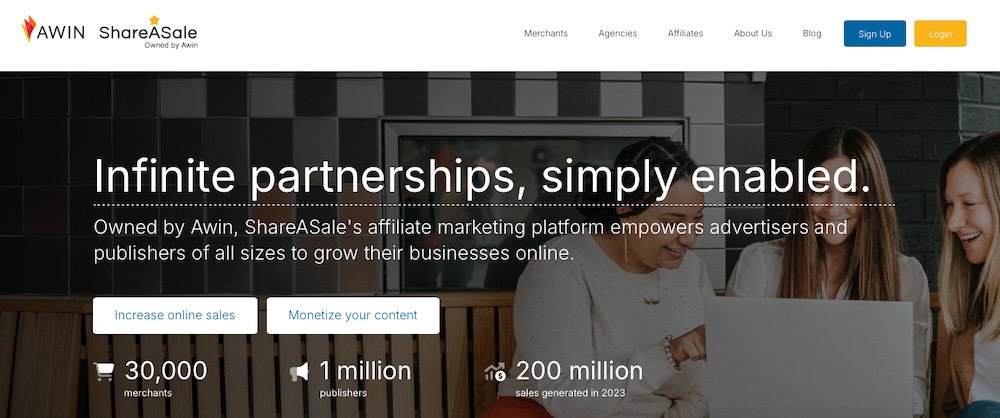
While blogging takes time to build momentum, consistency, and a clear strategy can turn it into a rewarding income stream.
2. Sell digital products
Selling digital products is one of the most scalable ways to make money with WordPress. Unlike physical goods, digital products don’t require inventory, shipping, or storage, making them a hassle-free option for creators, entrepreneurs, and freelancers.
You can sell a variety of digital products through your WordPress site. Ebooks are a popular choice for those who want to share their expertise or tell a compelling story.
Designing your ebook with tools like Canva or Visme and selling it through WooCommerce makes the process simple and efficient. Similarly, printables like planners, calendars, or templates are in high demand and easy to create with a basic understanding of graphic design.
Stock photos, illustrations, or videos are another excellent option. If you have photography or design skills, create a portfolio of high-quality visuals and sell them directly on your site. This approach cuts out third-party platforms, allowing you to keep more of your earnings.
To get started, you’ll need a WordPress plugin designed for digital product sales. Easy Digital Downloads, as shown in the image below, is a reliable choice for managing digital transactions.
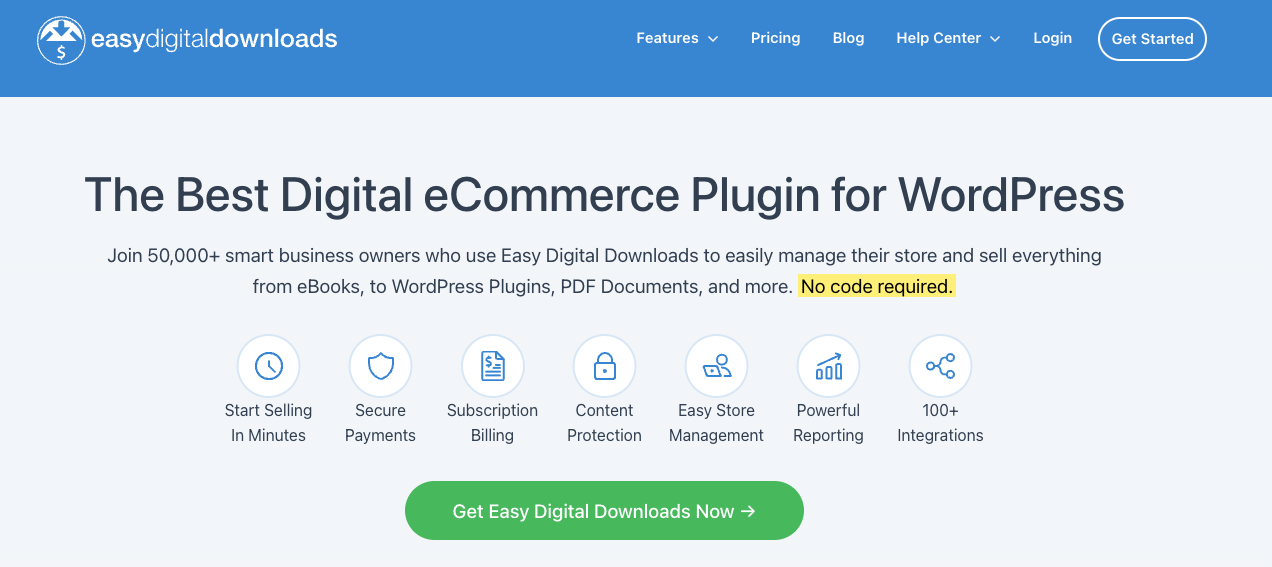
3. Offer professional services
If you have a skill or expertise, offering professional services through WordPress is a fantastic way to monetize your knowledge. Web designers, content writers, consultants, or coaches can benefit from this approach.
Start by building a portfolio that showcases your skills and past work. Use the built-in block editor or a third-party page builder plugin like Elementor to design a visually-appealing site that communicates your value, as illustrated in the screenshot below:
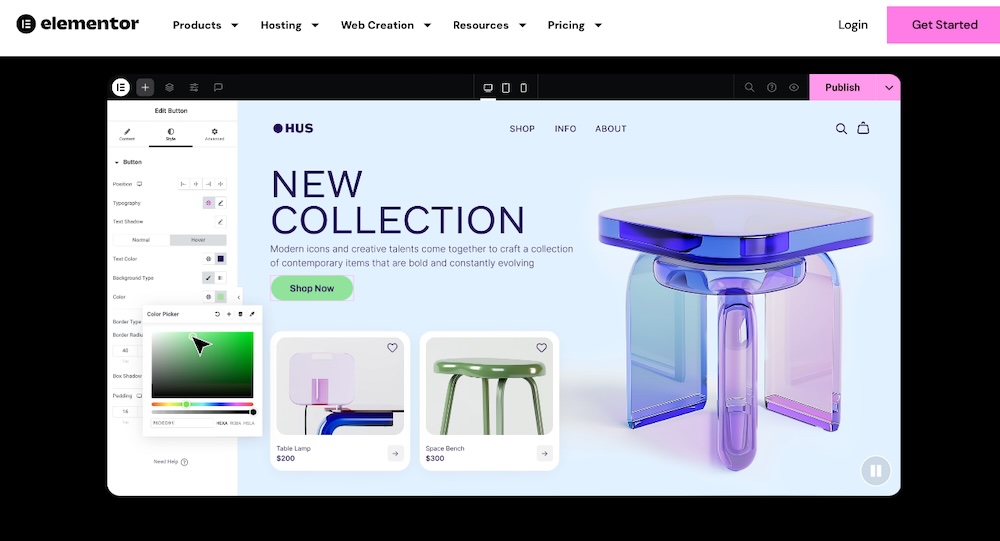
A well-crafted “About” page and clear service descriptions help you stand out and connect with your target audience.
Adding a contact form allows visitors to easily reach out for quotes or consultations. Or, if you offer coaching, therapy, or any appointment-based service, a booking plugin like Amelia or Bookly simplifies scheduling and reduces back-and-forth emails.
Price your services effectively and offer packages to meet different client needs. Upselling complementary services — like SEO add-ons for a web design package — can increase your earnings while delivering added value.
To promote your services, consider content marketing strategies like writing blog posts that showcase your expertise or using email marketing to connect with leads. Using Omnisend to automate email workflows can ensure you stay top of mind with prospects.
4. Create and sell online courses
Another way to make money with WordPress involves creating and selling online courses. To do this, start by identifying a topic where you have real knowledge or skills to share — digital marketing strategies, DIY crafts, and coding are all suitable subjects.
Whatever you choose, keep it focused. Selecting a specific niche helps your course appeal to a targeted audience. From there, break down your content into structured modules or lessons to help students follow along and stay engaged.
WordPress offers several plugins to simplify the process of building an online course. LearnDash, shown below, and LifterLMS are two top options that allow you to create courses, track progress, and even offer certifications upon completion.
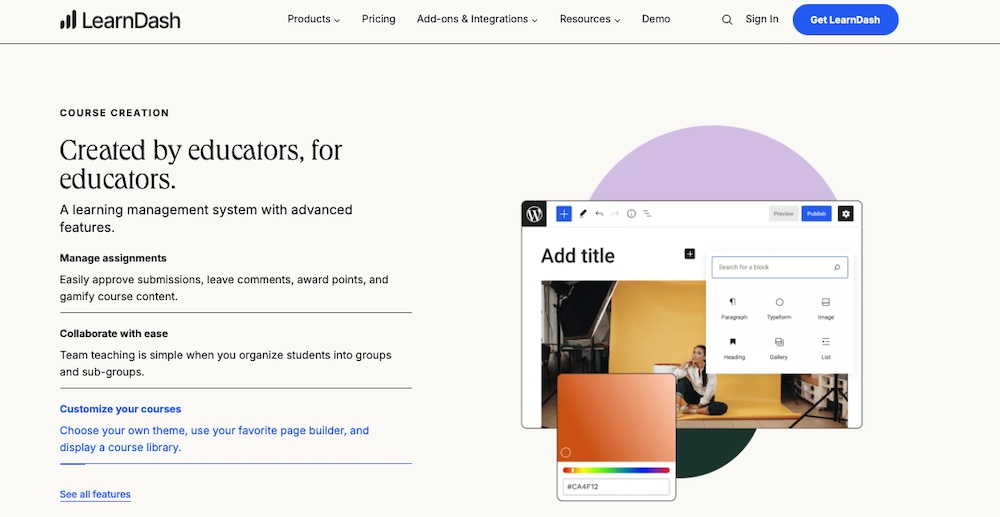
These tools also let you design quizzes, discussion forums, and other interactive elements to enhance the learning experience.
Monetizing your course is just as important as creating it. Offer tiered pricing with different levels of access, like basic content, premium extras, or one-on-one coaching sessions.
5. Launch a membership website
Membership sites present a great way to generate recurring income while building a loyal community. Offer exclusive content, courses, or services behind a paywall and you’ll provide ongoing value to members while ensuring a steady revenue stream.
Creating a membership site with WordPress is straightforward. Start by identifying what your target audience values most — this could be premium tutorials, access to a private forum, or behind-the-scenes content. Providing something they can’t easily find elsewhere is the key here.
WordPress plugins like MemberPress or Restrict Content Pro make it easy to manage memberships, create tiered access levels, and process recurring payments. Configure it in whatever way makes the most sense for your situation.
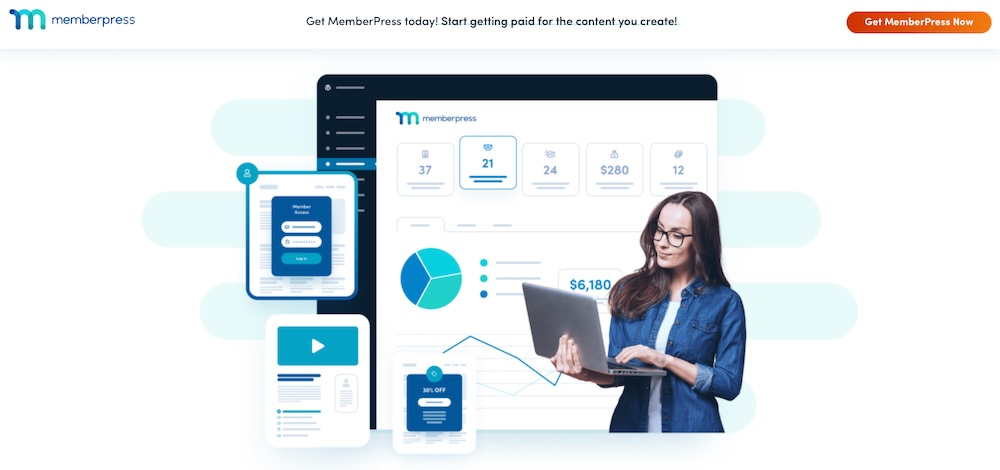
Offer different subscription plans, like a basic plan with limited access and a premium plan that includes bonuses like one-on-one consultations or downloadable resources.
Building a sense of community matters a lot for retaining members. Include features like private forums or live chat spaces to give members a reason to stay. Regularly updating content keeps your site fresh and relevant, too.
6. Start a dropshipping business
Dropshipping allows you to run your own online store without the hassle of managing inventory, packing, or shipping products. With WordPress and WooCommerce, you can set up a dropshipping store and start selling products sourced from suppliers around the world.
To get started, choose a profitable niche — preferably something you have some knowledge about. Focus on a specific audience to make your marketing efforts more targeted and effective. Once you’ve selected your niche, partner with reliable suppliers who handle product storage and fulfillment.
Plugins like AliDropship and Spocket, as you can see in the image below, integrate with WooCommerce, allowing you to import products and automate order management.
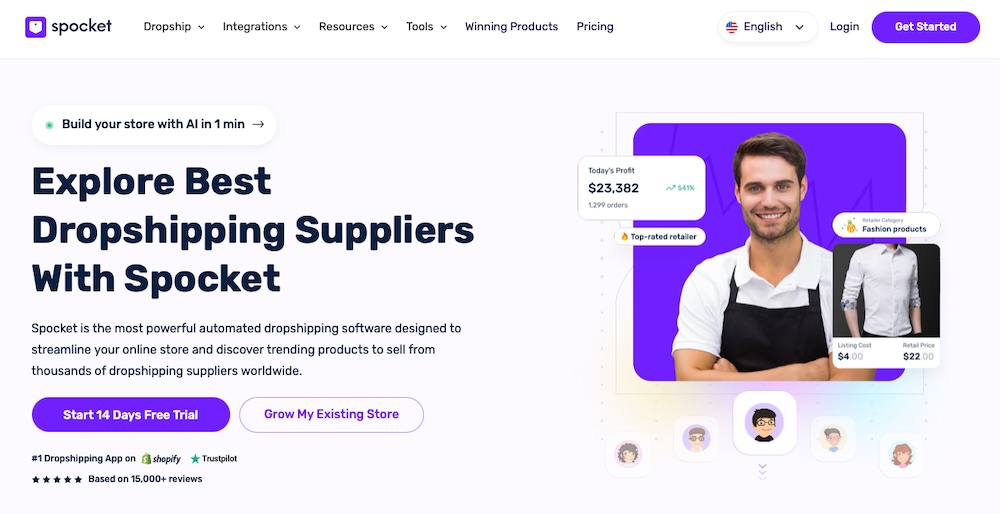
With dropshipping, your success often relies on how well you market your store. Create an attractive and user-friendly WordPress website using customizable WooCommerce themes.
High-quality product descriptions and images build trust with potential buyers as well. Offering discounts, bundles, or free shipping can also help boost sales.
7. Build an ecommerce store
Another way to make money with WordPress involves setting up an ecommerce store. It’s one of the most direct ways to earn using the platform.
Whether you’re selling handmade crafts, custom apparel, or niche products, pairing WordPress and WooCommerce makes it simple to set up a professional and scalable online store.
To get started, just choose a product or category that suits your interests and market demand. A clear focus helps attract a loyal audience and makes marketing more effective. Then, choose an ecommerce theme that suits your niche.
WooCommerce, the leading ecommerce plugin for WordPress, provides everything you need to manage your store. You can list products, handle payments, and track inventory from a single dashboard.
Extensions like WooPayments simplify transactions, while shipping tools like ShipStation automate the logistics of order fulfillment.
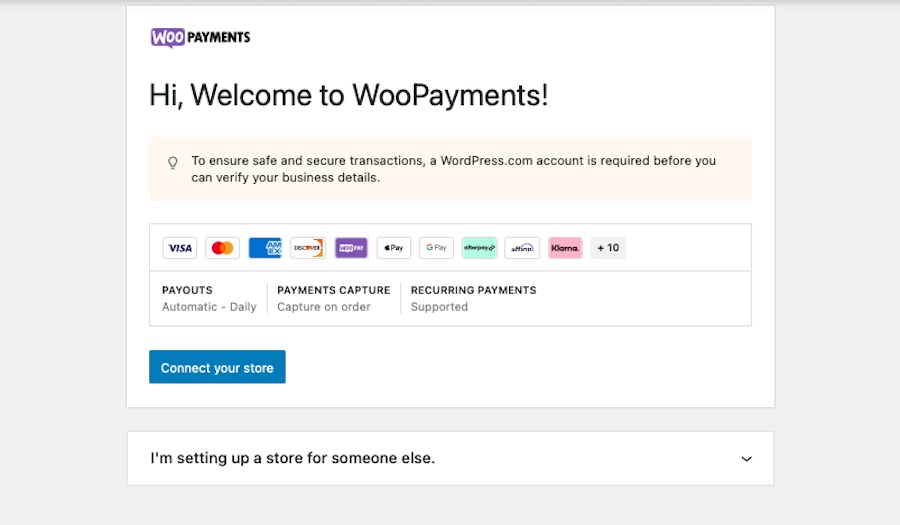
Building trust will be a top priority, too. Add customer reviews, detailed product descriptions, and high-quality images to reassure buyers. Offering secure payment options, a clear return policy, and responsive customer service will also help you build credibility and loyalty.
8. Monetize your expertise through consulting
If you have specialized knowledge or skills, consulting offers a great way to turn your expertise into income using WordPress. Whether you’re a business strategist, SEO expert, life coach, or fitness trainer, WordPress provides the tools to showcase your services and attract clients.
To take this approach, build a professional website that illustrates your experience. Use a customizable theme or the WordPress block editor to create a clean, easy-to-navigate site. Include an engaging “About” page to tell your story, a “Services” page to outline your offerings, and a portfolio or case studies to show your achievements.
Adding a contact form is a wise move, too. This makes it easier for prospects to inquire about your services. If you offer one-on-one sessions, integrate a booking system like Bookly, as shown below, so clients can schedule appointments directly on your site.
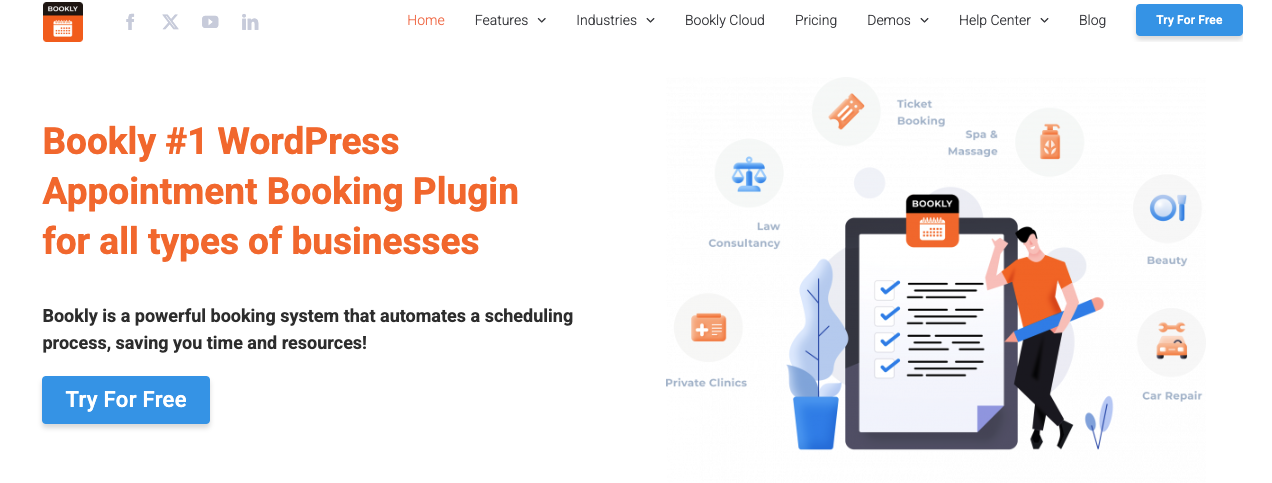
Monetizing your expertise through consulting generates income and lets you make a meaningful impact by solving problems for your clients.
9. Create a directory or listing site
Generate income while providing value to a specific community by creating a directory or listing site. These WordPress sites can range from local business directories and job boards to niche marketplaces for freelancers or specialized services.
To get started, identify a niche that has demand but isn’t oversaturated. For example, a directory focused on wedding vendors in a specific region or a job board for remote graphic designers can attract a dedicated audience. Clear differentiation and targeted marketing are key to standing out.
Building a directory site is simple with WordPress, especially when paired with plugins like GeoDirectory or Business Directory Plugin:
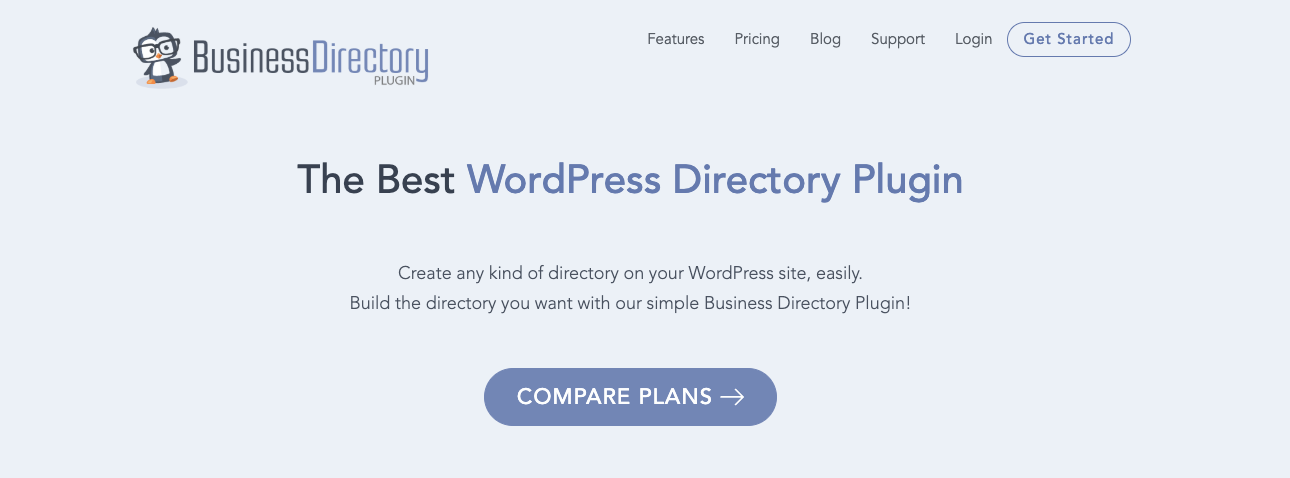
Use these tools to create and manage listings, accept user submissions, and even offer premium placement for businesses that want more visibility. Monetize your site by charging for listings, offering subscription plans, or selling ad space.
To drive traffic and engagement, optimize your site for user experience. Ensure it’s easy to navigate with intuitive filters, categories, and search. Also, create detailed listings with photos, reviews, and contact information to add credibility and value for visitors.
10. Sell WordPress themes or plugins
If you have a knack for coding or design, creating and selling WordPress themes or plugins can be a lucrative way to make money. With millions of WordPress sites worldwide, there’s a constant demand for fresh designs and innovative functionalities.
Start by identifying a gap in the market. You could design a theme for a specific industry, like restaurants or fitness trainers, for instance. Or, develop a plugin that solves a common issue, like appointment booking or advanced analytics.
Researching popular plugins and themes on marketplaces like ThemeForest or CodeCanyon can provide inspiration and help you find opportunities. You can see some of the top-performing WordPress plugins on CodeCanyon in the image below:
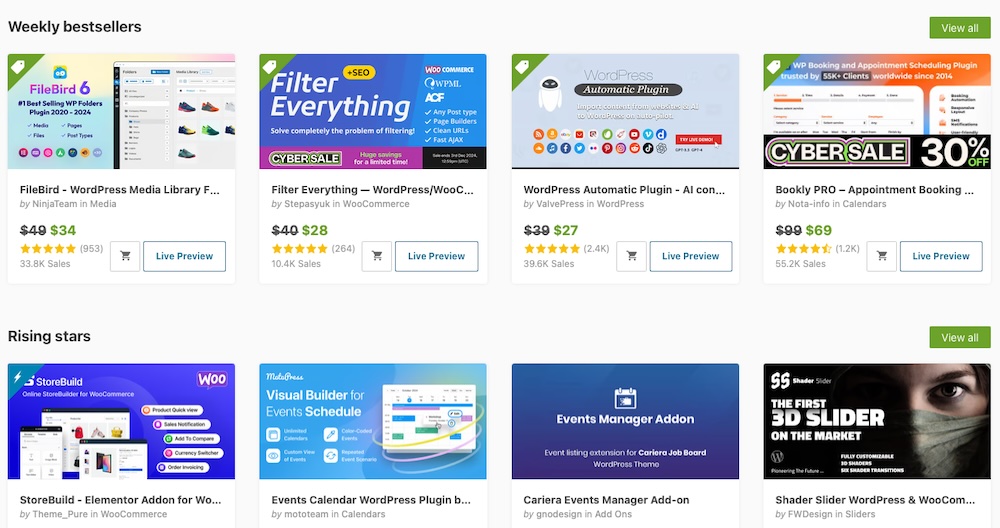
Once you’ve created your product, the open-source nature of WordPress makes it easy to distribute. Sell your themes or plugins through your own site and use WooCommerce to manage sales and downloads. Or, list them on third-party marketplaces for wider exposure. Offering both free and premium versions attracts a broad audience and encourages upgrades as well.
To be successful, you’ll need to provide excellent support and regular updates. Customers value reliability, so ensure your theme or plugin is compatible with the latest WordPress versions and includes detailed documentation and responsive customer service.
11. Start a podcast and monetize it
WordPress makes it easy to create a podcast website that connects with your audience and generates revenue.
Your primary focus should be on creating engaging, high-quality episodes that fit within your chosen niche and that your audience connects with.
Then, use WordPress plugins like Seriously Simple Podcasting to host and manage your episodes directly from your site.

This plugin integrates with podcast platforms like Spotify, Apple Podcasts, and Google Podcasts to make distribution a hands-off process.
Sponsorships are a common approach to monetizing a podcast. In this scenario, brands pay you to promote their products or services during episodes.
You can also offer premium content to paying subscribers, like ad-free episodes, exclusive interviews, or behind-the-scenes content.
Many podcasters also incorporate affiliate marketing by promoting products or services and earning a commission on sales.
12. Manage WordPress websites for clients
Managing websites for clients is another practical way to earn consistent income with WordPress. As people from all walks of life rely on having an online presence, many need ongoing assistance with maintenance and updates.
If you know your way around WordPress already, offering website management services can be lucrative.
You’ll need a professional website that clearly outlines your services. These might include tasks like regular updates, plugin and theme management, security monitoring, and performance optimization. If you have design skills, you could create websites for people as well.
Offering additional services like content updates, SEO improvements, or hosting support also increases your value to clients.
Use a platform like ManageWP, Kinsta, or Automattic for Agencies to oversee multiple client websites from one dashboard. These tools also let you automate backups and monitor site performance.
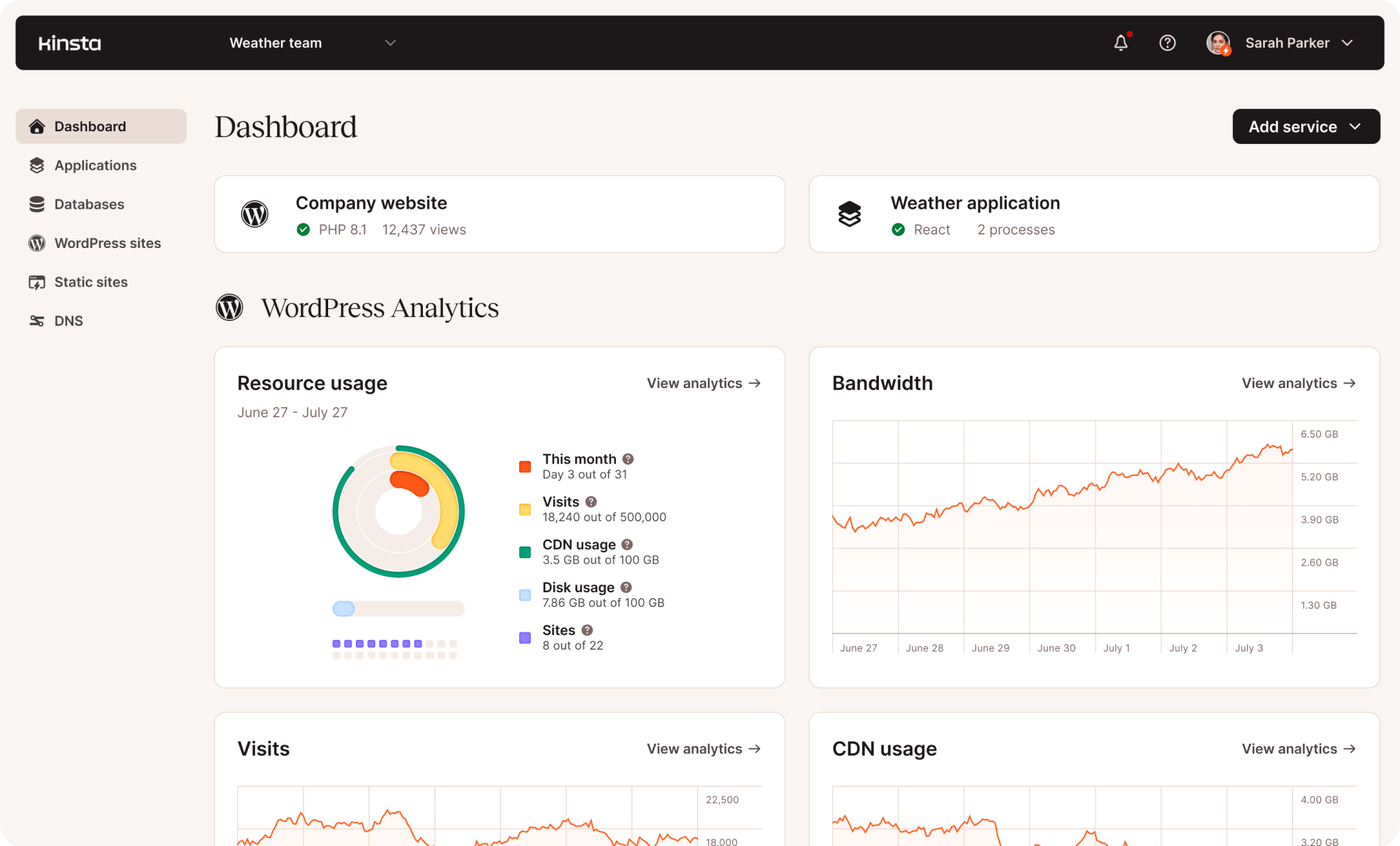
13. Create a job board or freelance marketplace
Building a job board or freelance marketplace with WordPress is a practical way to bridge the gap between employers and job seekers. Unlike massive, generic job sites, a WordPress-powered site gives you the flexibility to cater to a specific niche.
Whether you cater to remote developers, creative freelancers, or healthcare professionals, narrowing the focus of your site to a defined audience sets it apart and attracts loyal users.
To get started, zero in on a niche that solves a clear problem. For instance, a job board for seasonal ski instructors can highlight opportunities in companies committed to flexible work in that industry. Or, a marketplace for kids book illustrators might include project-based gigs.
Once you’ve nailed down your concept, a plugin can add the job board functionality. A popular choice is WP Job Manager, which provides a straightforward, open-source solution:
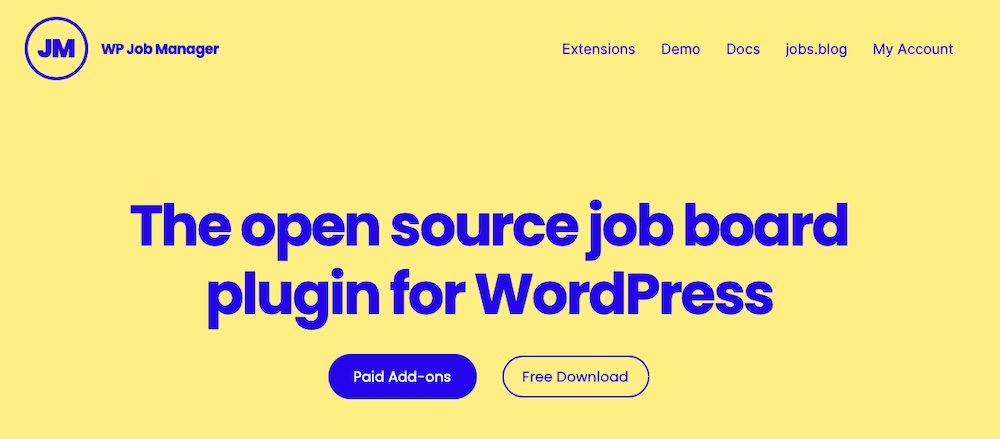
Revenue opportunities abound for job boards and marketplaces. Charge employers for posting listings, offer featured job placements for extra visibility, or introduce subscription plans for businesses with recurring hiring needs.
For freelance marketplaces, earning a commission on successfully completed gigs adds another layer of profitability.
Your platform’s usability will make or break its success. Ensure that employers can easily create postings and job seekers can quickly find opportunities.
14. Run a paid newsletter
Another way to turn your expertise into recurring revenue is to run a paid newsletter. WordPress allows you to easily create a platform that delivers exclusive content your audience values enough to pay for, such as key insights about a specific industry, practical tips, or creative inspiration.
To begin, identify your niche and audience. Instead of casting a wide net, focus on a topic where you offer something unique or solve a specific challenge.
A newsletter for ecommerce entrepreneurs with strategies for boosting sales might be a good option. You can also create a newsletter for designers looking to stay ahead of emerging trends. The more targeted your content is, the easier it is to build a loyal subscriber base.
Tools like Omnisend let you effortlessly manage your email list and deliver content directly to your subscribers’ inboxes. If you’re looking for more advanced email automation and segmentation, you can also use it to create workflows that welcome new subscribers, remind them of upcoming payments, and upsell premium plans.
Promoting your newsletter to the right audience will help to grow your subscriber base. Use your WordPress site to showcase sample content and testimonials that highlight the value of your newsletter.
Combine this with targeted email campaigns, social media promotion, and referral incentives to encourage signups.
15. Create an events website
Lastly, you have the option of monetizing your organizational skills and ability to connect with audiences by creating an events website. This can take many forms, from hosting webinars to online conferences to in-person meetups.
WordPress provides the tools you need to manage registrations, sell tickets, and promote your events. Start by identifying the type of events you want to focus on, such as virtual workshops, industry conferences, charity fundraisers, or personal celebrations like weddings or parties.
Once you have a clear focus, use a plugin like The Events Calendar to set up your site.
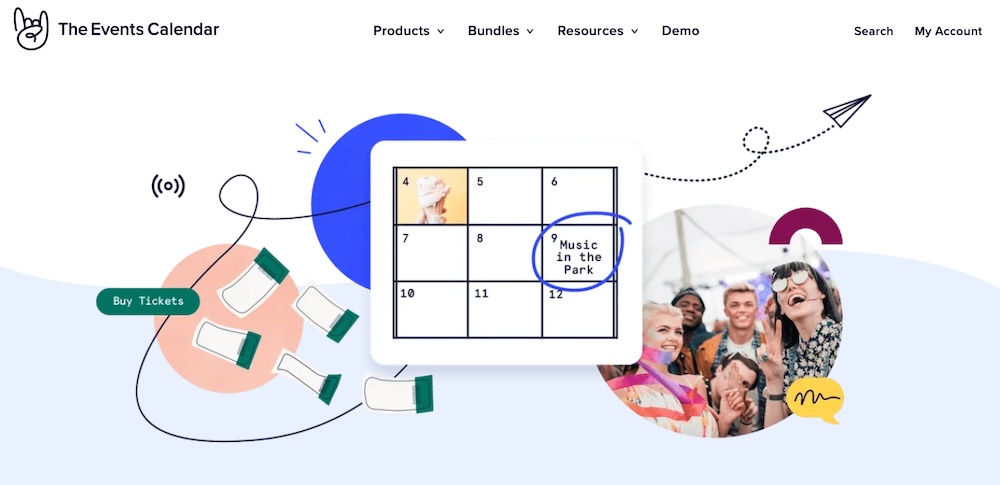
This tool simplifies event management by letting you create listings, handle registrations, and even process ticket sales.
You can monetize your events in several ways. Selling tickets is the most obvious method, but you can also offer add-ons like VIP packages, merchandise, or access to post-event recordings. For free events, consider securing sponsorships from relevant brands or collecting voluntary donations.
To enhance your site’s user-friendliness, include features like a calendar, itineraries, and multiple payment options.
How Omnisend makes monetization easier
While WordPress provides the tools to launch your monetization efforts, scaling them effectively requires a smart marketing strategy — and that’s where Omnisend shines.
This powerful email and SMS marketing platform helps entrepreneurs and small business owners automate marketing, engage audiences, and boost conversions.
Omnisend covers many features centered around supporting the WordPress monetization strategies mentioned in this article. Here are just a few of the ways this marketing automation tool could benefit you:
- Automated workflows: Save time with pre-built workflows for common scenarios like welcome emails, cart abandonment recovery, and post-purchase follow-ups. So, if you sell digital products or run an ecommerce store, these workflows ensure you never miss an opportunity to convert or re-engage customers.
- Personalized communication: Build stronger customer relationships with personalized emails, SMS messages, and landing pages. Omnisend allows you to segment your audience based on behavior, preferences, or location, ensuring that your messaging resonates.
- Multi-channel marketing: Go beyond email with SMS campaigns, push notifications, and integrations with social media platforms. It doesn’t matter if you’re promoting an online course, a new blog post, or a membership plan, you can reach your audience where they’re most active.
- Performance tracking: Monitor the success of your campaigns with in-depth analytics and reporting tools. Track key metrics like open rates, click-through rates, and ROI to continually optimize your efforts.
Integrating Omnisend into your WordPress site means automating time-consuming marketing tasks, increasing engagement, and growing your revenue.
WordPress provides endless profit potential
WordPress offers an unmatched platform for turning ideas into income. From blogging and selling digital products to launching membership sites and managing client websites, the possibilities for making money seem endless.
Lean into the WordPress themes, plugins, and integrations offered, and you’ll create scalable income streams that meet (or exceed) your goals.
Success doesn’t just depend on launching your site, however, how you get the word out matters, too. That’s where Omnisend can make a huge difference. With automated email and SMS marketing, you’ll save time, nurture customer relationships, and maximize your earnings.
So, what’s your next move?
Quick sign up | No credit card required
TABLE OF CONTENTS
TABLE OF CONTENTS


No fluff, no spam, no corporate filler. Just a friendly letter, twice a month.

 OFFER
OFFER







